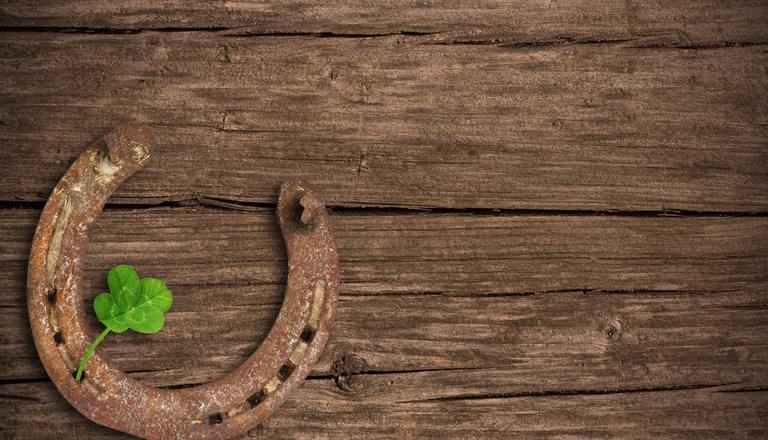
Can lucky charms help you win a lottery jackpot?
Luck is a mysterious force of nature that has had humans seeking to understand and manipulate it, often turning to symbols and rituals in an attempt to harness its power. While the lottery is primarily governed by statistical probability, the human mind has a remarkable capacity for belief and superstition, and therefore luck has always played a major factor in lottery play.
Lucky charms and their power
“Lucky” charms can come in various forms, ranging from everyday objects infused with personal significance, to ancient symbols steeped in cultural tradition. For some players, a rabbit's foot or a four-leaf clover holds the promise of good fortune, while others may turn to religious relics or talismans for protection and luck. The power of these charms lies not in their intrinsic qualities but in the belief placed upon them by their owners. Psychologists have long studied the phenomenon of superstition, recognizing that even the most rational minds can harbour irrational beliefs when it comes to luck. In the realm of the lottery, where hope springs eternal and dreams of wealth abound, lucky charms offer a sense of control in the face of pure randomness.
Cultural factors can also play a significant role in shaping our beliefs about luck and the efficacy of lucky charms. Different societies have their own symbols and rituals associated with good fortune, passed down through generations and woven into the fabric of daily life. From the Chinese practice of Feng Shui to the Indian tradition of astrology, cultures around the world have developed intricate systems for understanding and influencing luck. In the West, symbols like the horseshoe and the lucky number seven hold immense sway, their origins rooted in folklore and myth. In the lottery, where players often rely on intuition and gut feeling, lucky charms serve as tangible reminders of our cultural heritage and the power of collective belief.
But can lucky charms truly improve one's chances of winning the lottery, or are they simply psychological crutches in an uncertain world? From a rational perspective, the answer seems clear; the outcome of a lottery drawing is determined by pure chance, with each number having an equal probability of being selected. No amount of lucky charms or rituals can alter the underlying mathematics of probability. Yet, as any seasoned gambler will attest, luck is a fickle mistress, capable of defying logic and reason.
Maybe belief is luck
One explanation for the perceived effectiveness of lucky charms lies in the concept of self-fulfilling prophecy. When individuals believe strongly in the power of their lucky charm, they may exhibit behaviours and attitudes that increase their chances of success. For example, someone who carries a lucky coin may approach the lottery with a greater sense of confidence and optimism, leading them to play more frequently or choose numbers more decisively. While these actions do not change the fundamental odds of winning, they may indirectly influence outcomes by affecting the player's behaviour and mindset.
Furthermore, the psychological benefits of lucky charms should not be underestimated. In a world characterized by frighteningly uncertainty and unpredictability, people often seek solace in symbols and rituals that provide a sense of stability and control. Whether it's a small lucky charm tucked into a pocket or a prayer whispered under one's breath, these rituals offer a comforting illusion of influence in the face of total randomness. In the lottery, where the stakes are high and the odds quite low, the psychological boost provided by a lucky charm can be invaluable, helping players cope with the inherent uncertainty of the game.
From a cultural perspective, lucky charms serve as a powerful expression of identity and belonging. In a society increasingly characterized by war and unrest, the preservation of traditional symbols and rituals takes on added significance. By carrying a lucky charm associated with their cultural heritage, individuals reaffirm their connection to the past and assert their place in the present. In this sense, lucky charms transcend their practical function as talismans of luck, becoming symbols of cultural resilience and collective identity.
So while the effect of lucky charms in improving one's chances of winning the lottery may be dubious from a rational standpoint, their psychological and cultural significance cannot be denied. As symbols of hope and belief in the face of uncertainty, lucky charms offer a sense of control and comfort to those who wield them. Whether it's a rabbit's foot, a lucky coin, or a sacred talisman, these objects serve as tangible reminders of the power of human imagination and the enduring allure of luck. In a world where fortunes can change in an instant, perhaps it's not luck itself that matters most, but rather the belief in its possibility. As the saying goes, "Fortune favours the bold” and sometimes, a little bit of luck can't hurt either.
